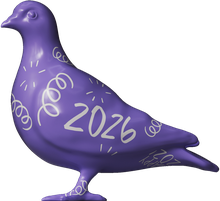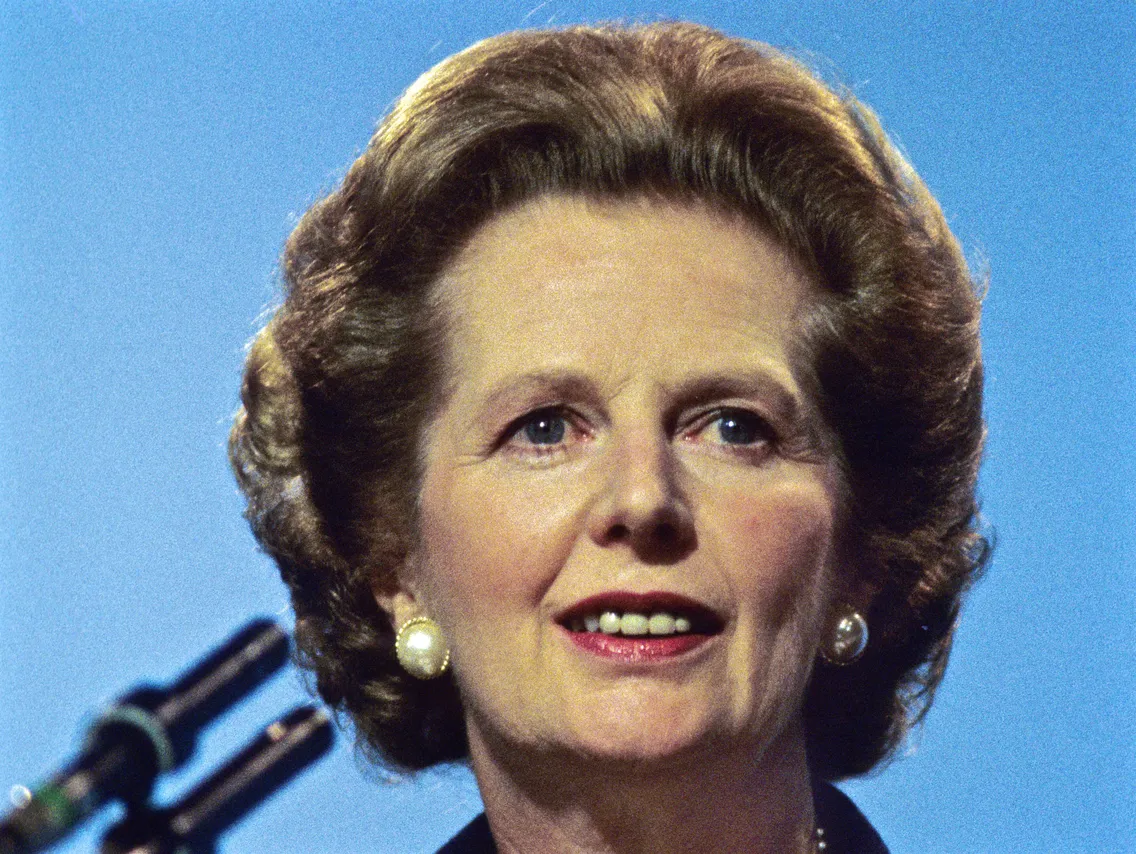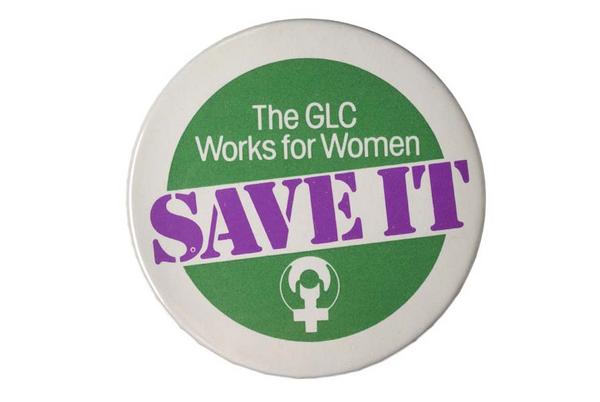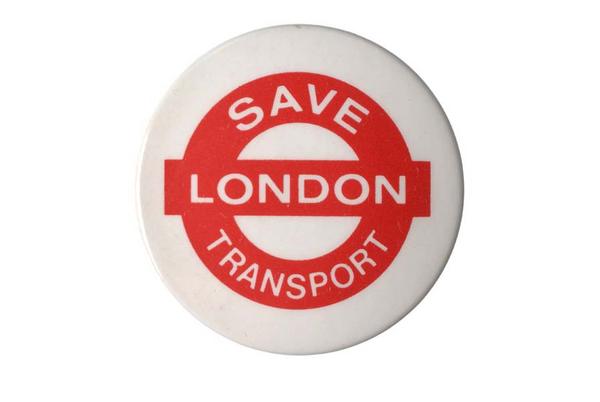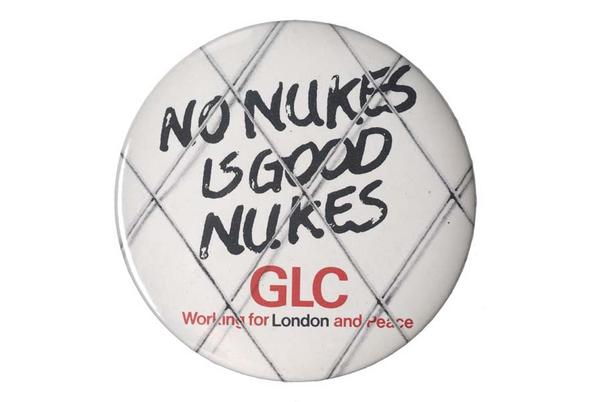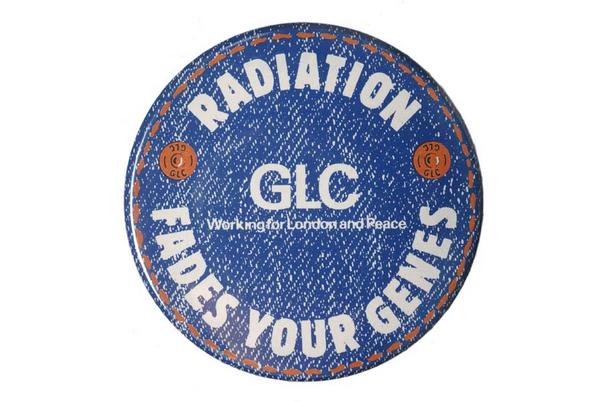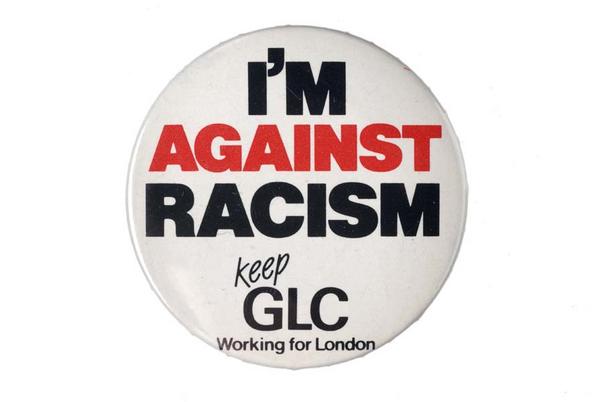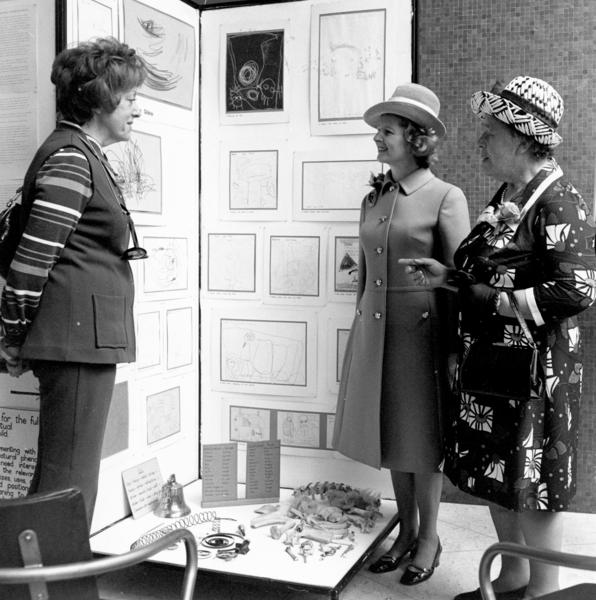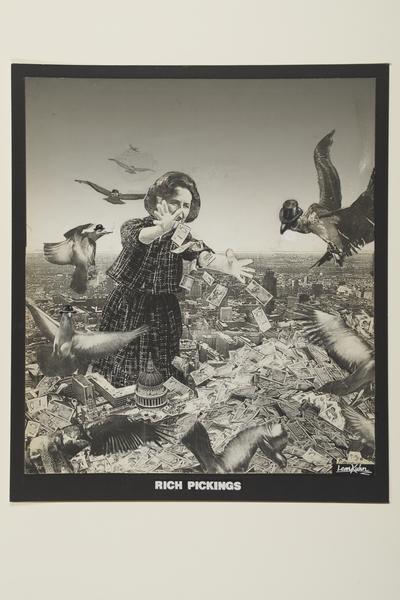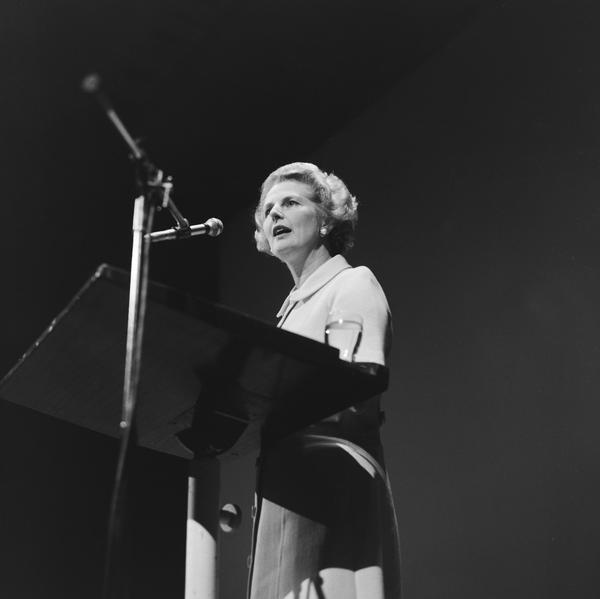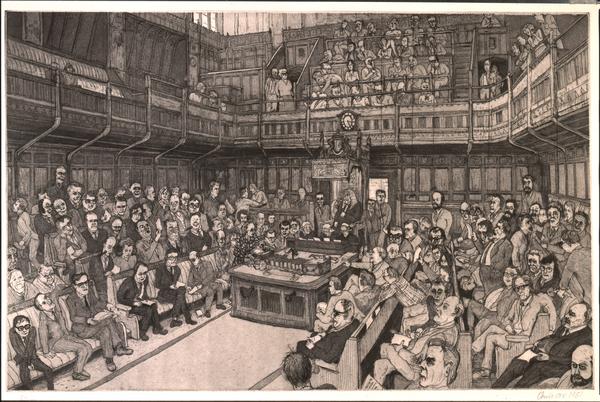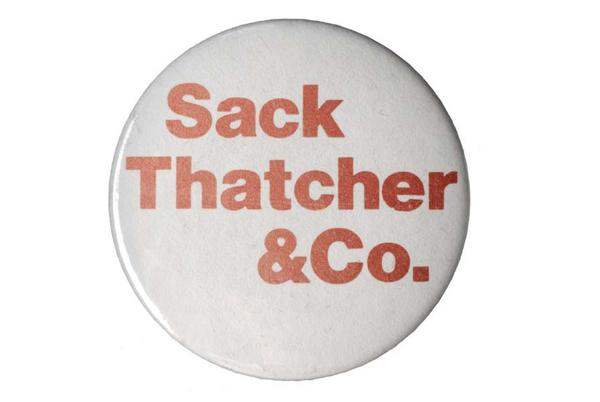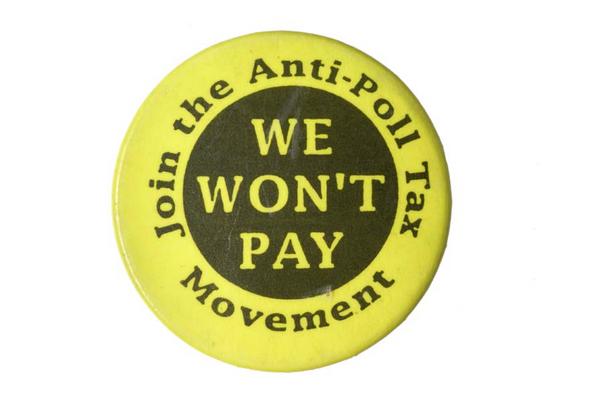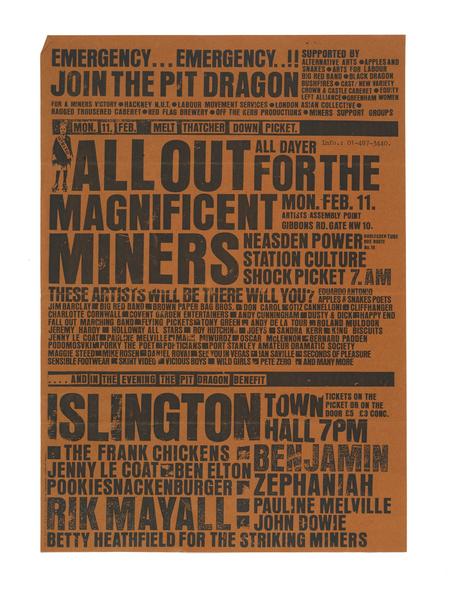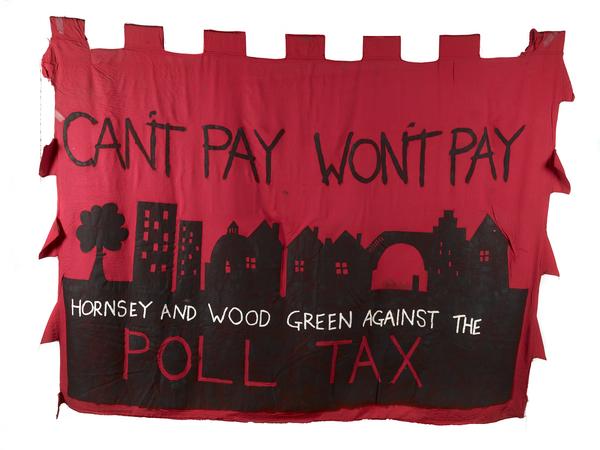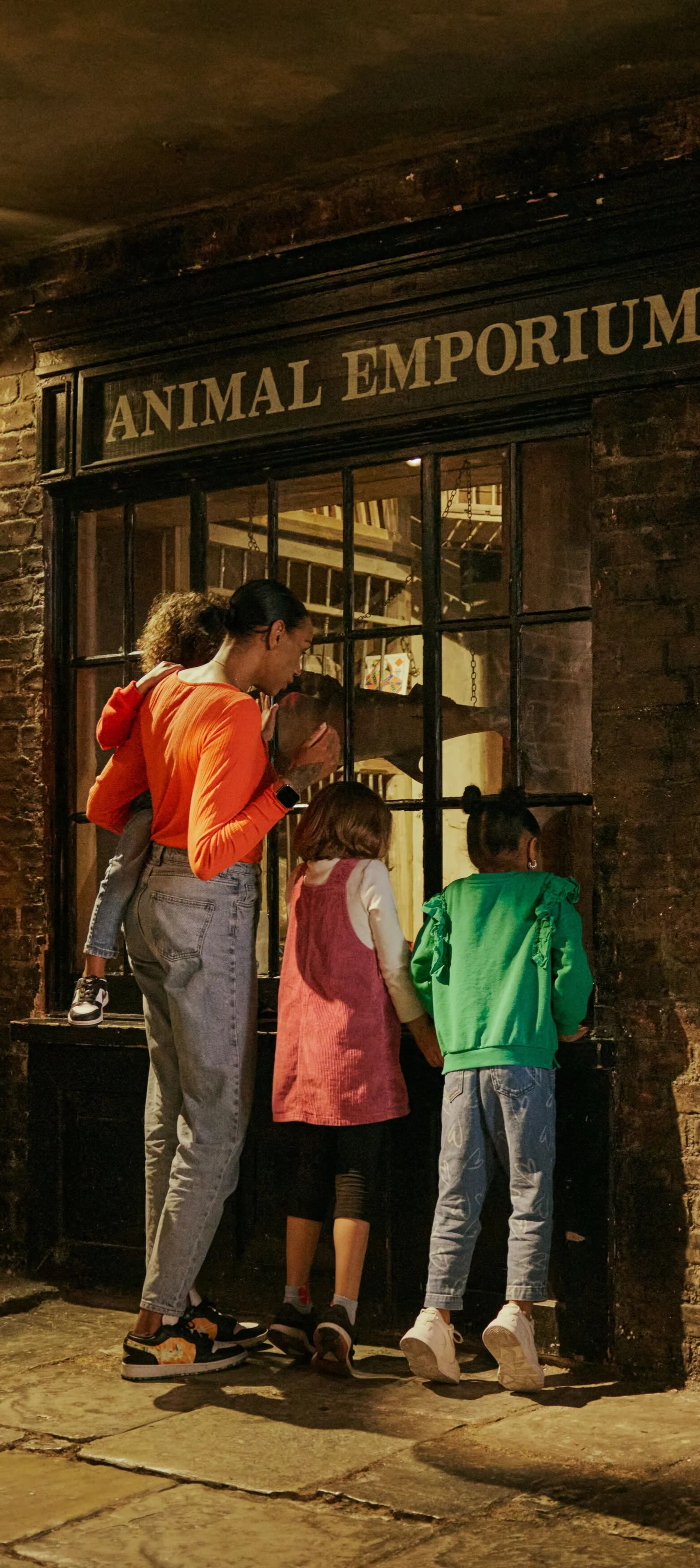Protesting Margaret Thatcher
Margaret Thatcher was prime minister from 1979 to 1990 – a period marked by strikes and protests against her Conservative government’s divisive policies.
10 Downing Street
1925–2013
Challenging the Iron Lady
Thatcher was the UK’s first female prime minister, and the longest serving prime minister in the 20th century.
Her belief in individual responsibility and minimising government intervention became known as Thatcherism. The policies she brought in reshaped Britain’s industrial, social and political landscape, but were hugely controversial.
When Thatcher died in 2013, aged 87, the split response made it clear how divisive her legacy remains.
In our collection, artwork, badges and protest flyers from the time show the scale of public anger towards policies like the poll tax, privatisation and the break-up of the Greater London Council.

Thatcher speaking to sixth-formers at the Royal Festival Hall in 1971 while she was education secretary.
The making of Maggie
Margaret Thatcher was born in Grantham in 1925. She became the Conservative MP for Finchley in 1959, rose to party leader in 1975, and became prime minister by winning the 1979 general election.
Her uncompromising approach earned her the nickname the Iron Lady. After leading Britain into the Falklands War in 1982, Thatcher’s popularity grew.
Some adored her leadership style. Others hated it. She won three elections in total, and was prime minister for 11 years.
“I am not a consensus politician. I'm a conviction politician”
Margaret Thatcher, 1979
Thatcher, Thatcher, milk snatcher
Thatcher angered some people even before she was prime minister. While working as education secretary in 1971, the government stopped schools giving free milk to schoolchildren aged 7–11.
Labour and the press branded her “Mrs Thatcher, the Milk Snatcher”. The name stuck.
Photos by Henry Grant in our collection show schoolchildren drinking milk in the 1950s, and protesting in 1972 to bring it back.
A free market and a financial big bang
While prime minister, Thatcher championed free-market policies, believing the economy would benefit from less government control. She sold many government-controlled businesses – a process called privatisation.
Under Thatcher, the financial industry – banks, stock traders and others – benefited massively. The Canary Wharf financial district was built in London’s former docklands with help from her government, despite the protests of locals on the Isle of Dogs.
The miners’ strike
In 1984, coal mining was a government-controlled industry. Thatcher wanted to make it more profitable, and quickly – so she decided to close 20 mines.
This led to a year-long strike by miners and their trade unions. In classic Thatcher style, she refused to change her mind. "I am not a consensus politician. I'm a conviction politician,” said Thatcher in 1979.
Closing the pits caused the loss of thousands of jobs, devastating mining communities in Wales, Scotland and northern England.
In London, events were held to support the strike. A flyer in our collection advertises a protest at the coal-fired Neasden power station, and a fundraiser featuring poet Benjamin Zephaniah and comedian Rik Mayall.
The Greater London Council
In 1986 Thatcher's government abolished the Greater London Council (GLC), which was led by Labour and Ken Livingstone, claiming it was inefficient.
The decision left London without local government for the first time since 1889.
Badges in our collection record the campaigns to keep the GLC in charge. They show the GLC’s reputation for supporting multiculturalism, gay rights and gender equality, with messages like “The GLC Works for Women – Save It.”
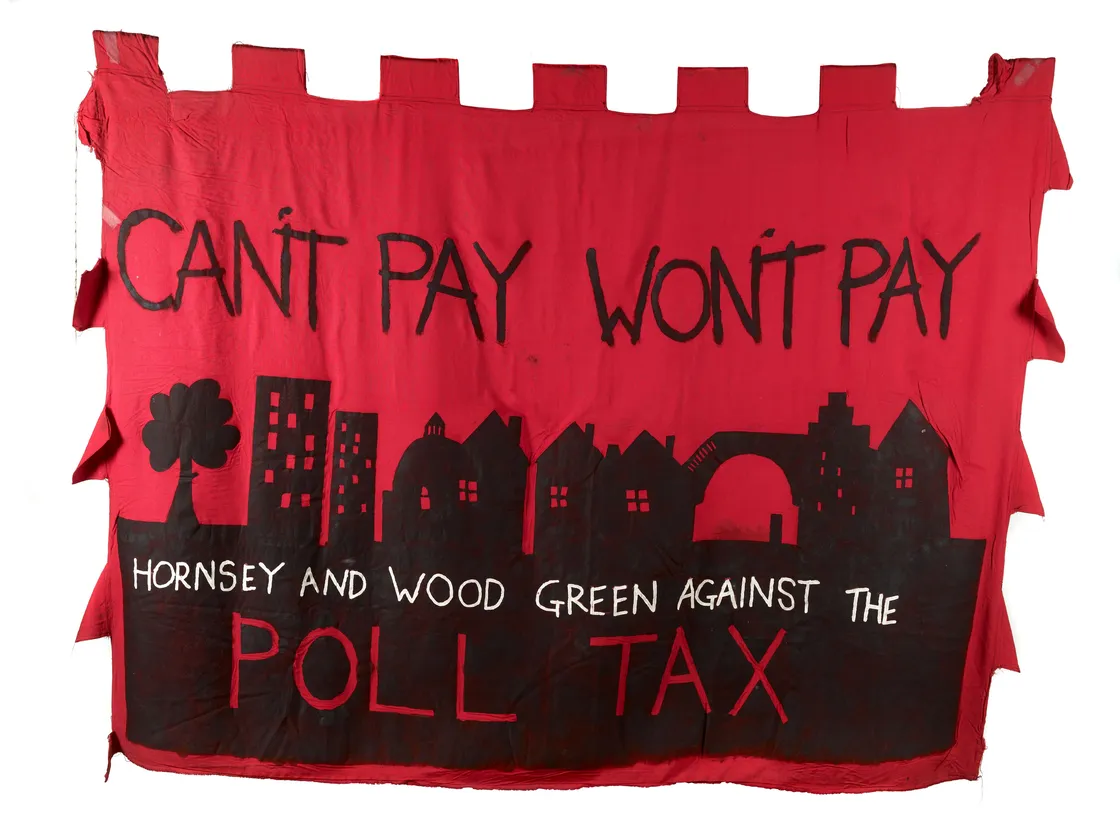
This anti-poll tax banner, made in 1989 by a group from Hornsey and Wood Green, was carried at the 1990 march to Trafalgar Square.
Poll tax
Towards the end of the 1980s, Thatcher started losing the support of her cabinet and the public, who felt she was abusing her power.
The prime example was a new tax: the Community Charge, better known as the poll tax. The poll tax was introduced in 1989 to fund councils. But everyone paid the same rate, unfairly impacting people who earned less.
The tax sparked a national outcry and led to a mass movement of non-payment. A demonstration in 1990 turned into a riot, as protestors clashed with police in Trafalgar Square.
The negative reaction to the poll tax, which also came from her own Conservative MPs, ultimately led to Thatcher's political downfall.

